
The AIgorythm project

Playwright and actor
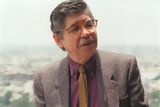
Novelist

Writer and poet

Volleyball player

Italian-Peruvian naturalist and geographer

Singer and percussionist

Last Inca emperor

Politician, former prime Minister

Journalist and TV host
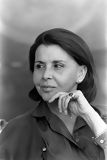
Poet

Inca warrior
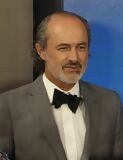
Actor and comedian

Biophysicist

Poet

Doctor and researcher
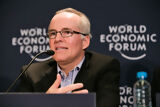
Businessman, Interbank group

Journalist and writer
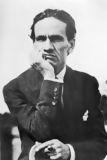
Poet and writer

Singer and songwriter
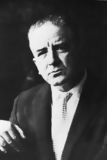
Writer

Film director, Berlin Golden Bear winner

Football player
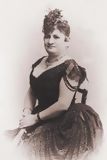
Writer and journalist
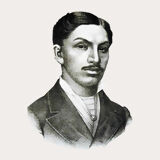
Doctor and scientist

Photograph

Chess player

Industrialist
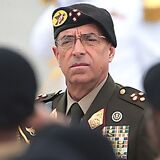
Former general

Specialist in public health

Actress and singer

Afro-Peruvian music singer

Mathematician and engineer

Indigenous chronicler

Neurologist and anthropologist

Painter

Football player
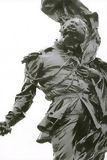
National hero, military leader

Intellectual and reformer

Chef and entrepreneur

Fashion designer

Singer-songwriter

TV presenter

Marathon runner

Indigenous Peruvian chronicler

Theologian

Former national team captain

Economist and former health minister

Inca princess

Writer and television host

Folk musician

Poet and guerrilla
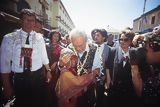
Former UN secretary-general

Chef, known for fusion cuisine

Football player

Peruvian aviation pioneer

Poet and artist
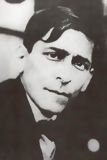
Marxist philosopher and writer

Industrialist and businessman
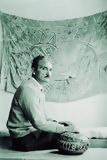
Novelist and ethnologist

Painter and muralist

Opera tenor

Fashion designer

Cardinal of Lima

Peruvian tennis player

Football coach

Leader of the indigenous rebellion
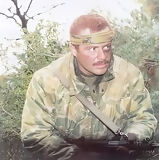
Military hero

Latin singer
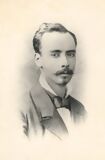
War of the Pacific hero

The youngest mother in history

Politician
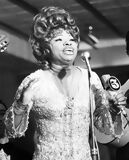
Creole music singer

Tennis player
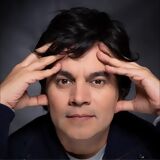
Musician

Writer and politician

Politician and founder of the Christian Democratic Party

Founder of Sodalitium Christianae Vitae

Archaeologist and anthropologist
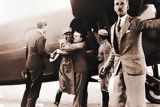
Military leader and politician

Television host
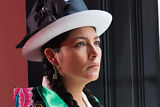
Actress and singer

Contemporary sculptor
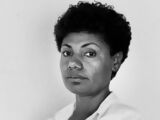
Women’s rights activist

Beauty queen

Astrophysicist

Heroine of independence

Mathematician and archaeologist

Historian and anthropologist
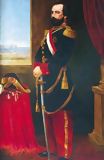
Military figure and historical figure
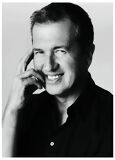
Fashion photographer
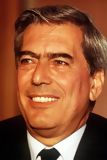
Writer, Nobel Prize in Literature, Politician

Revolutionary leader
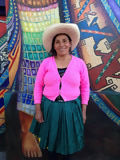
Environmental activist

Leader of the indigenous rebellion

Musician from Gaia band
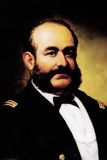
War hero
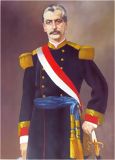
Military leader and politician

Chef, known for Nikkei cuisine

Volleyball coach and former player

Environmental activist

Television personality

Writer
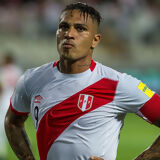
Football player

Epidemiologist and former health Minister

Inventor and aerospace pioneer

Soldier and inventor
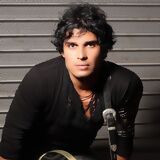
Rock singer

Chef and co-owner of Central restaurant

Painter

Football player

TV presenter and actress
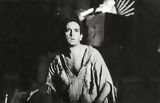
Actor
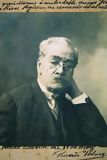
Writer and historian

Journalist and lawyer

Archaeologist, founder of Caral site
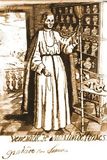
Monk and Saint
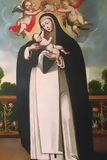
Saint, patron of Latin America

Physicist and engineer

World champion surfer

Actress

Oncologist
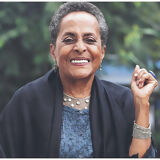
Singer, Latin Grammy winner

Former mayor of Lima

Singer

Actress

Former football player

Painter
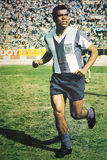
Former football player

Painter

Inca leader

Archbishop, saint
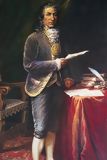
Leader of the indigenous rebellion

Revolutionary indigenous leader

Diplomat and intellectual

Sculptor and painter
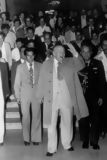
Political leader, founder of APRA

Lawyer and Former prime minister

Chef of Central restaurant
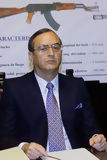
Former head of secret services

Popular singer

Fashion designer

Exotic music singer
Gustavo Gutiérrez is a Peruvian priest, theologian, and author, internationally recognized as the father of liberation theology. This theological and social movement, which emerged in Latin America in the 1960s, emphasized the defense of the poor and oppressed as a core element of Christian commitment. Throughout his career, Gutiérrez has blended his religious vocation with political and social thought, redefining the role of the Church in the context of poverty and structural injustice.
Gustavo Gutiérrez was born on June 8, 1928, in Lima, Peru, to a modest family. As a child, he suffered from polio, an experience that profoundly shaped his perspective on human suffering. Initially, Gutiérrez studied medicine before turning to theology. He pursued theological studies at the Catholic University of Leuven in Belgium and the University of Lyon in France, where he encountered contemporary theological trends such as existential Christian theology and personalism.
These European influences, combined with the harsh social realities of Latin America, led Gutiérrez to develop a theology deeply committed to social justice. In his early years as a priest, he began to question the structures of poverty, which he saw not only as a lack of material resources but as a condition resulting from systematic exploitation and oppression.
In 1971, Gutiérrez published his seminal work, A Theology of Liberation, which laid the foundations of the liberation theology movement. In this book, Gutiérrez argues that the mission of the Church cannot be separated from the struggle for social justice and that Christians must engage actively in defending the poor. Liberation theology is based on the idea that theological reflection should emerge from the lived experience of the oppressed and that Christian faith implies a concrete commitment to transforming unjust social structures.
This approach was revolutionary in the context of Latin America, where poverty and inequality were rampant. Gutiérrez emphasized that Christian salvation could not be viewed only in individual terms but must include the collective liberation of people from oppressive conditions.
One of the key concepts of Gutiérrez’s theology is the preferential option for the poor. This principle asserts that God shows a preference for the poor not because of their material condition but because they are the primary victims of unjust structures. Therefore, the Church and Christians must stand in solidarity with the poor and work to eliminate the causes of their suffering. This preferential option became a cornerstone of the Church’s social doctrine in Latin America.
The movement gained momentum, particularly during the 1970s and 1980s, in a Latin America marked by military dictatorships, social conflicts, and widespread inequality. Christian base communities, inspired by liberation theology, organized across many countries to fight for social justice and human rights.
Although liberation theology had a positive impact on many poor communities in Latin America, it also faced criticism, both within and outside the Catholic Church. Some sectors viewed it as overly political and associated with leftist revolutionary movements. It was particularly viewed with suspicion by the Vatican during the papacies of John Paul II and Benedict XVI (then Joseph Ratzinger, prefect of the Congregation for the Doctrine of the Faith).
Gutiérrez, however, always rejected the notion that his theology was based on Marxism, insisting that his work was grounded in the Gospel and Christian tradition. He defended liberation theology as a genuine response to the social realities of Latin America, where poverty and oppression were everyday issues. Despite the criticisms, Gutiérrez received support from important figures within the Church, including Pope Francis, who has emphasized the preferential option for the poor as central to his papacy.
In addition to A Theology of Liberation, Gutiérrez has written numerous books and essays exploring his thoughts on poverty, social justice, and the role of the Church. Among his most notable works are We Drink from Our Own Wells (1984) and The Power of the Poor in History (1979). His writings have inspired theologians and social activists worldwide, influencing the Church’s social doctrine, especially during the conferences of Medellín (1968) and Puebla (1979).
Throughout his life, Gustavo Gutiérrez has been a central figure in the dialogue between theology and social movements. Despite his advanced age, he remains an active voice in debates on social justice and poverty. He has taught at the Pontifical Catholic University of Peru, where he continues to mentor new generations of Christian thinkers committed to justice.
In 2003, Gutiérrez was awarded the prestigious Prince of Asturias Award for Communication and Humanities, recognizing his contribution to theological thought and his commitment to human rights. This honor solidified his status as one of the most influential Christian thinkers of the 20th century.
Gustavo Gutiérrez’s legacy is evident in the continued relevance of liberation theology in Latin America and beyond. His thought transcended religious boundaries to influence social and political movements that seek to combat poverty and structural injustice.
Today, liberation theology remains a source of inspiration for those who fight for a more just world, grounded in the principles of the Gospel and human dignity. Gutiérrez has demonstrated that Christian faith should not be confined to the spiritual realm but must manifest in concrete actions promoting the liberation of the oppressed.
Gustavo Gutiérrez is more than just a theologian; he is a prophetic voice calling Christians to action on behalf of the poor and marginalized. His work has left an indelible mark on theology and social justice movements in Latin America and around the world. His commitment to the most disadvantaged continues to serve as an example for those who seek to reconcile faith with the struggle for social justice.